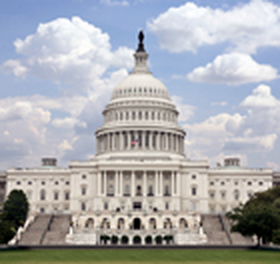
Eyes are on the federal government as a possible partial government shutdown looms for Oct. 1 as members of Congress fight over the approval of any spending plan that contains funding for Planned Parenthood. Could 2015 echo 2013, when congressional differences over the debt ceiling and the Affordable Care Act led to a federal government shutdown of more than two weeks, halting flu surveillance and safety inspections, preventing the updating of government websites and causing other effects? Time will tell.
During the 2013 government shutdown, health services offered by the U.S. Department of Veterans Affairs, including services in assisted living settings, medical centers and clinics, continued. Federal employee paychecks and benefits checks to veterans and other beneficiaries, however, were delayed.
Outside of such settings, however, if the federal government shuts down Oct. 1, the effect on aging services providers would depend on the length of time agency operations are suspended, Barbara Gay, vice president of public policy communications for LeadingAge, tells McKnight’s Senior Living.
“Independent living, assisted living and continuing care retirement communities likely would see little effect because they are largely private pay,” she says. And a relatively short shutdown would not severely affect affordable seniors housing funded by the U.S. Department of Housing and Urban Development because some advance funding is available, particularly under Section 8, she adds. “However, a longer shutdown or a protracted series of short-term continuing resolutions could be problematic,” Gay says.
“Medicare payments for post-acute care could be delayed by a shutdown, since [Centers for Medicare and Medicaid Services] staff likely would be furloughed,” she adds.
“Responsible members of both political parties recognize that a government shutdown is not an effective way to govern,” Gay says. “LeadingAge urges all legislators to work together to avert a shutdown by passing budget and spending bills for fiscal year 2016 in a timely manner.”
James Balda, president and CEO of the Assisted Living Federation of America, tells McKnight’s Senior Living that assisted living’s regulation at the state level enables the industry to avoid being affected by such events, among other benefits. “The only issue would end up being…if it related to Social Security payments to retirees,” but those payments most likely would not be affected, he notes. Social Security beneficiary payments were not affected in either federal government shutdown in the 1990s, nor were they affected in the 2013 shutdown.
The American Health Care Association/National Center for Assisted Living declined to comment for this article.



